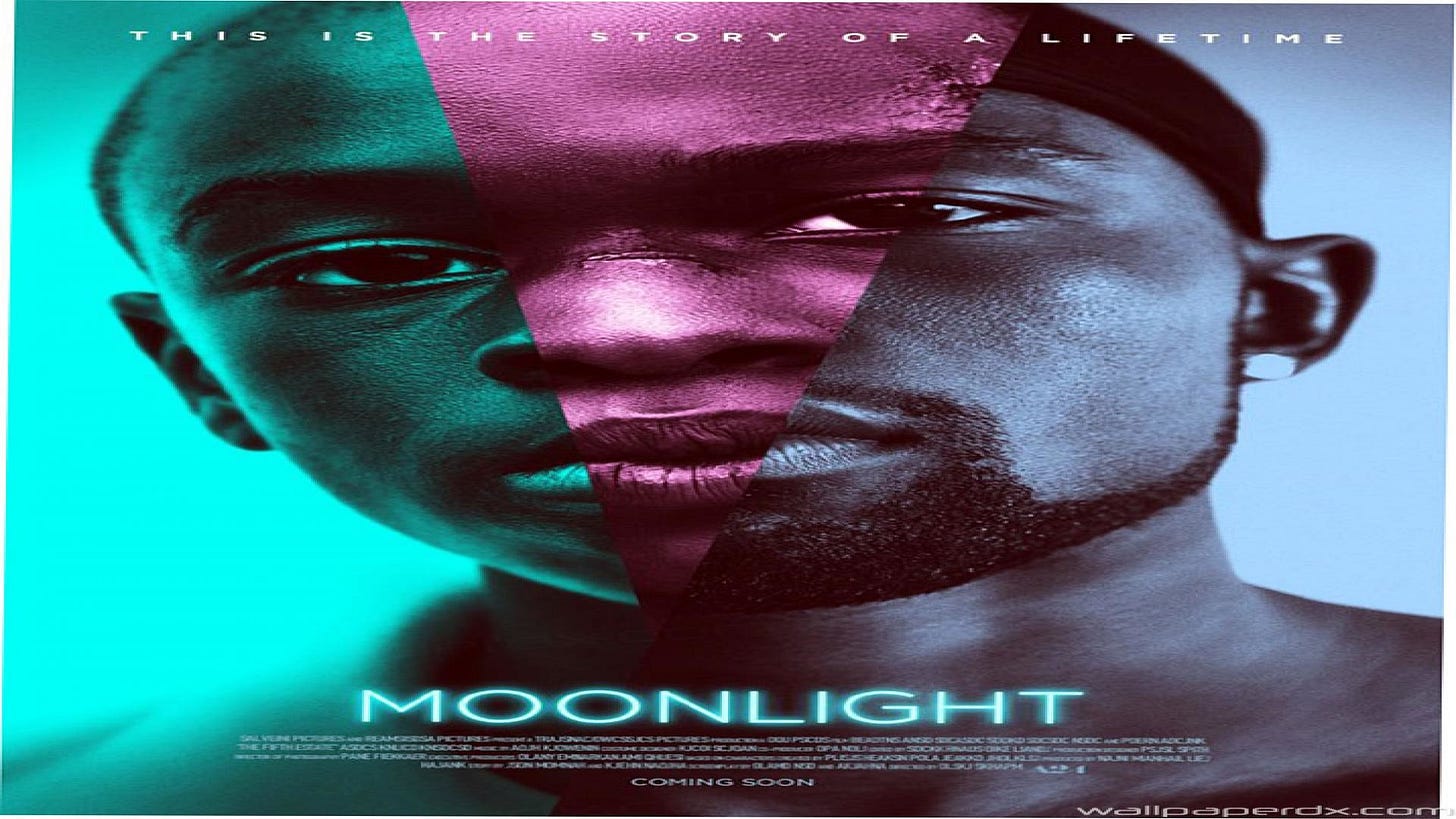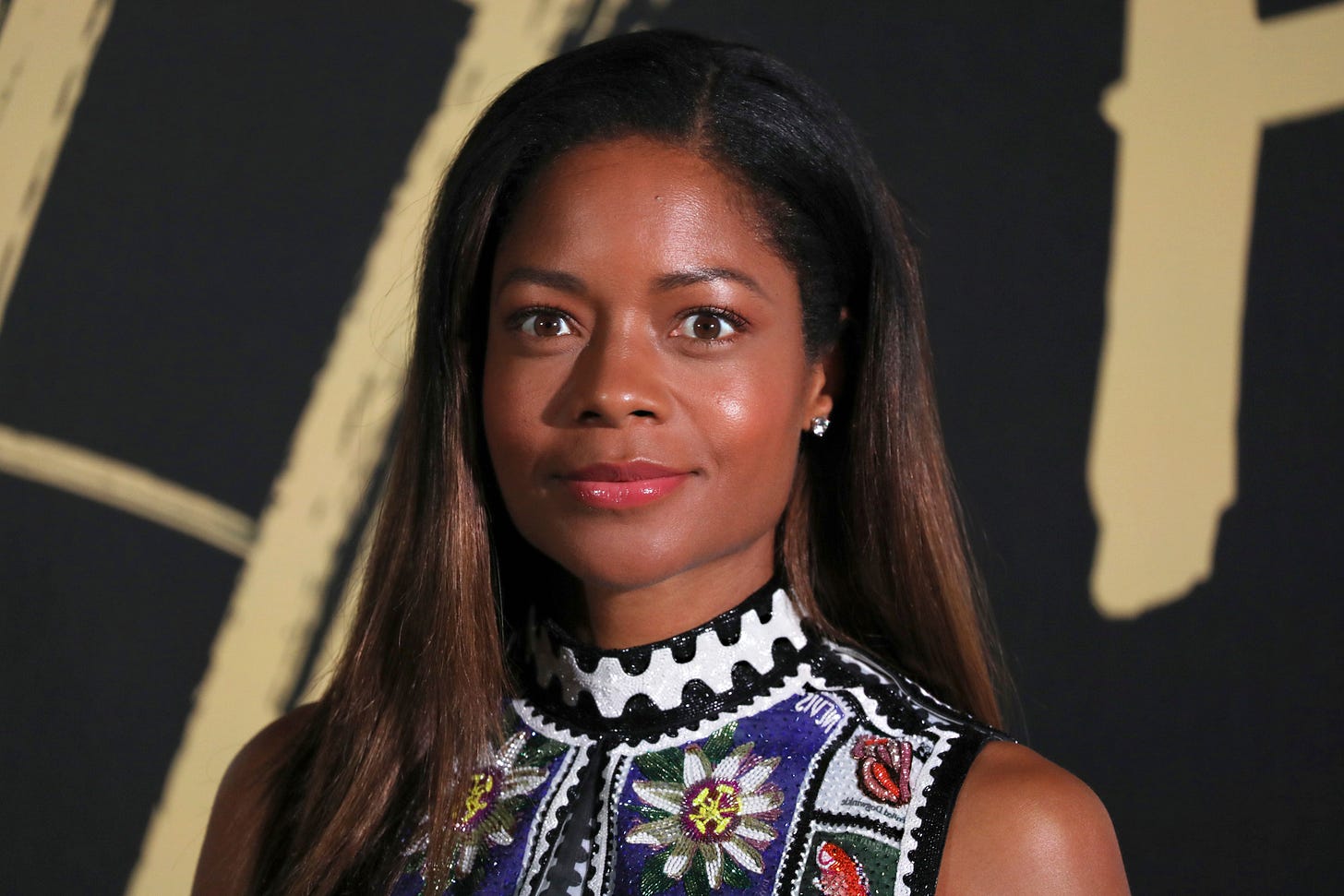Film Review of “Moonlight,” 2016, Starring Trevante Rhodes, Andre’ Holland, Janelle Monae, Ashton Sanders, and Jharrel Jerome, with Naomie Harris and Mahershala Ali. Barry Jenkins, Dir., A24 Prod.
Themes: Coming of Age, Black Communities, Urban Life, Drug Addiction, Violence, Missing Fathers, Hypermasculine Culture, Gay Questioning, Water Is Life, and Resilience
Mahershala Ali.
.
Where to begin to talk about such an incredibly powerful film? This movie traces the life—in three distinct stages—of a young gay Black male and takes the viewer through those three very different worlds. Filmed in different types of approaches, the three stages show how young Chiron deals with elementary school years, high school nonsense, and the lonely reality of adult life. Most of the action takes place—including the filming of the movie—in Miami.
Some of the world’s greatest Black stars are in the film, and all actors did a tremendous job expressing the wants and needs of their particular characters. Naomie Harris and Mahershala Ali, especially, have been given nominations and awards and accolades for the great work they did in the film. However, the film gained many, many awards for a wide range of the actors and a wide range of technical and other feats.
Aside from the artistic and symbolic and technical triumphs of the film, the story of Chiron is an essential one to try to understand. Urban Black males will relate to the challenges he faces throughout the three stage. Viewers can begin to understand something of the huge pressure on Chiron and his friends to act certain ways to be accepted.
Chiron gets bullied by his mother, his friends, kids on the street, and anyone who he is in contact with. Chiron gets called “faggot” by several people. He is not sure what it means. This bullying goes on through stage two—that of high school. Note that Chiron is played by three different actors in the movie.
Always acquiescent when younger, Chiron explains in the third stage, adult years, that he has started over. He insists, “I rebuilt myself. I built myself strong.” He and his best friend Kevin have a special bond, it is clear, even though they do not spend much time together as kids. Kevin is also played by three different actors, representing his different age in each of the three stages.
The film is gritty, and it is maddening at points. Naomie Harris, who plays the mother, is good at getting us to hate her in the film. Her addiction to drugs ruins the childhood of Chiron and helps make him that bullied, desperate kid who admits to his friend Kevin that he has cried. That he still cries into stage two.
Befriended early on by Juan (played by Mahershala Ali who won an Oscar for best supporting actor) Chiron finds somebody in whom he can confide and ask hard questions. Juan’s attempt to be a good stand-in father is dented deeply by the fact that he is selling drugs to Chiron’s mother. When Chiron realizes this, and Juan admits it, Chiron walks away. Juan hangs his head in shame.
The film won an Oscar for best picture and many, many other awards and mentions. (See below for details).
Naomie Harris.
.
One important fact to remember is that this great film features an all-Black cast. The film is a big winner at the box office, and many people have sensed the power of the film. Hence, it has earned all of those awards.
Barry Jenkins, has given the world a powerful and important film here. Based on a story by Tarell Alvin McCraney, Moonlight is the sort of film that lends itself to discussion among hugely diverse groups, from social workers to advocates for the homeless and from educators to community members. Counselors, street helpers, and policy makers need to see honest and straightforward films like this that show the importance of diversity and challenge.
Also important to note is that Moonlight was the first LGBTQ movie to win an Oscar for best picture.
Although some almost did it, this was the first movie to pull it off—while tackling the taboo topic of Black gay male sexuality. This film thus provides great insight into another world—one not explored well previously in the cinema. It was definitely time for someone “to go there” and talk about these issues, taboos, and topics.
I recommend this film completely and would love to participate in a discussion of the movie sometime soon. This is an important piece to understanding the cultural puzzle of different races and realities. Please view it soon!
.
.
Further reading:
“List of accolades received by ‘Moonlight’ (2016 film)” Wikipedia, entry revised January 27, 2025, https://en.wikipedia.org/wiki/List_of_accolades_received_by_Moonlight_(2016_film)
“Mahershala Ali,” Wikipedia, entry revised March 15, 2025, https://en.wikipedia.org/wiki/Mahershala_Ali
“'Moonlight' Makes Oscars History as 1st LGBTQ Best Picture Winner,” by Mary Emily O’Hara, NBC News, February 2017, https://www.nbcnews.com/feature/nbc-out/moonlight-makes-oscars-history-1st-lgbtq-best-picture-winner-n726116
“‘Moonlight’ Named Top Film by African American Film Critics,” by Dave McNary, December 12, 2016, Variety, https://variety.com/2016/film/awards/moonlight-african-american-film-critics-1201940071/
“Naomie Harris, Wikipedia, entry revised March 15, 2025, https://en.wikipedia.org/wiki/Naomie_Harris
“Oscar watch: Inside the Magic of 'Moonlight,'” by Andrea Mandell, USA TODAY, October 2016, (before the Oscars of 2017) https://www.usatoday.com/story/life/movies/2016/10/19/moonlight-movie-mahershala-ali-naomie-harris-trevante-rhodes/92381662/






